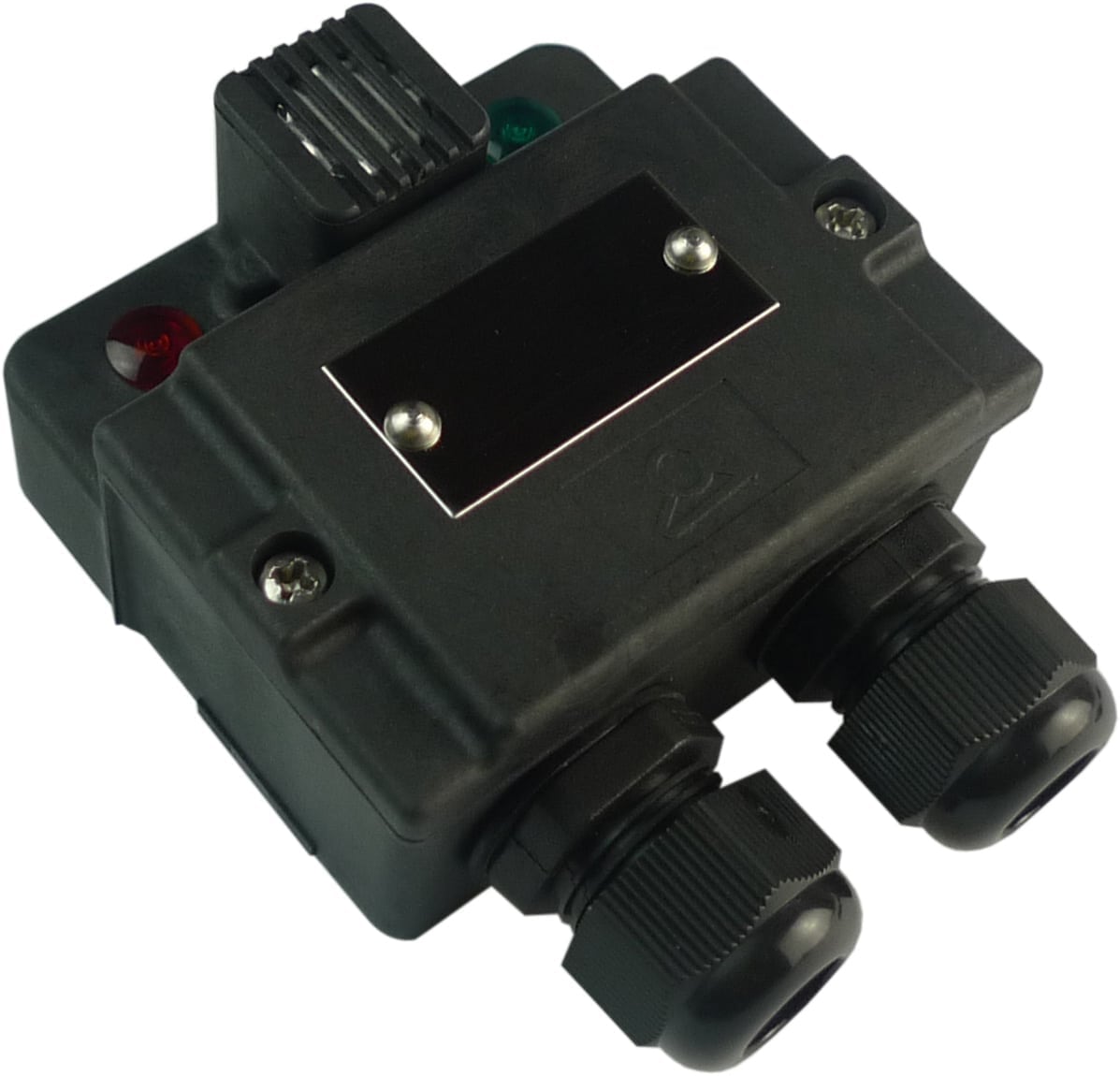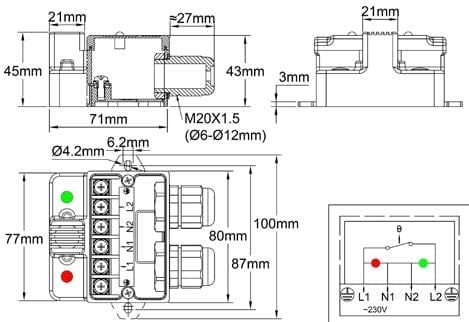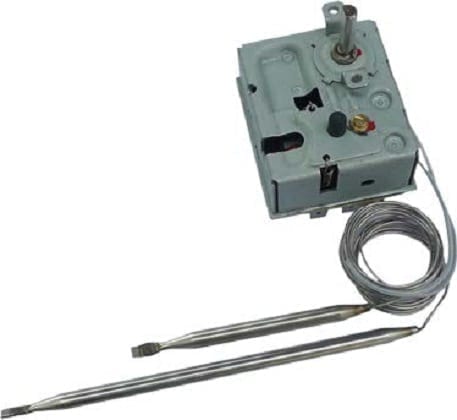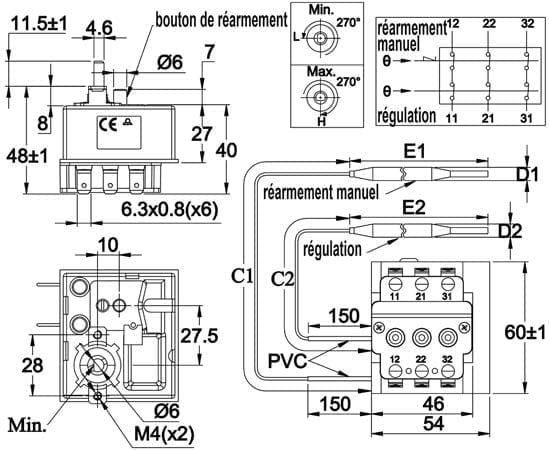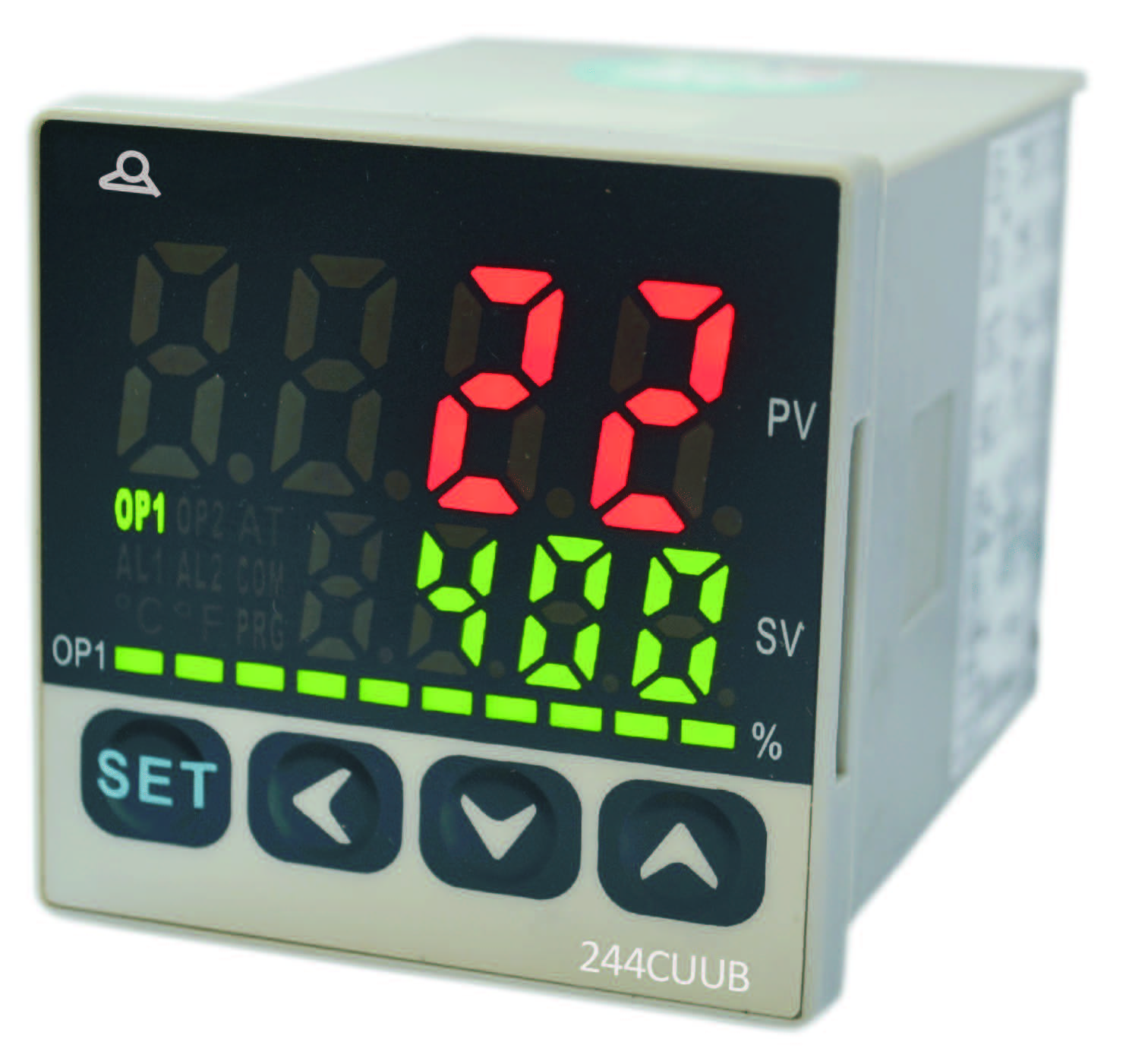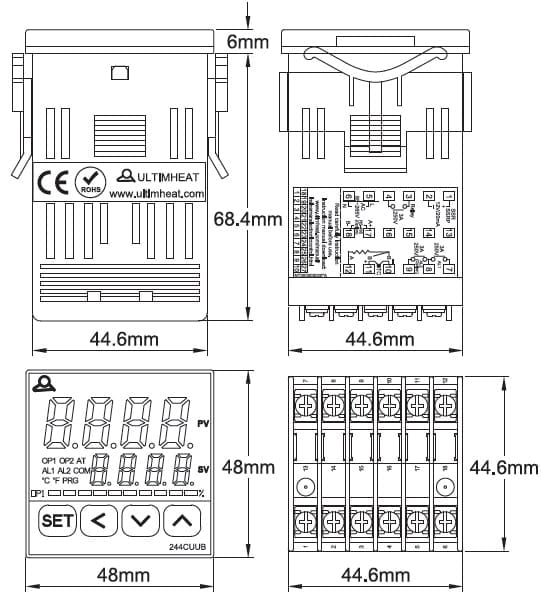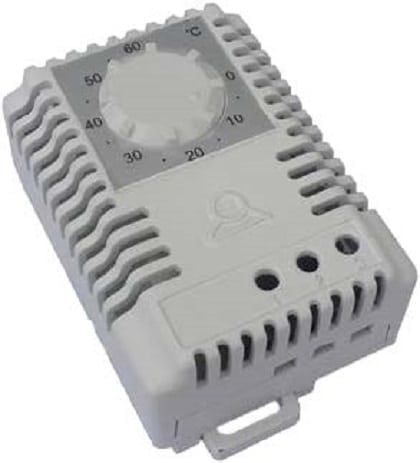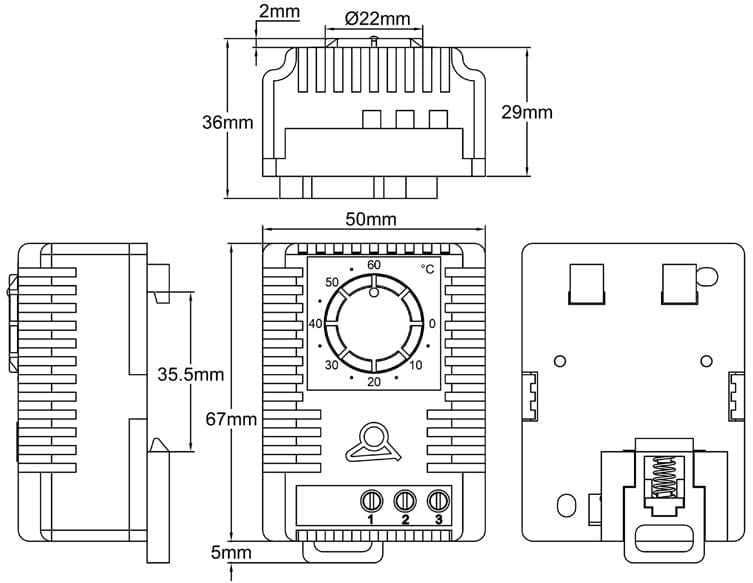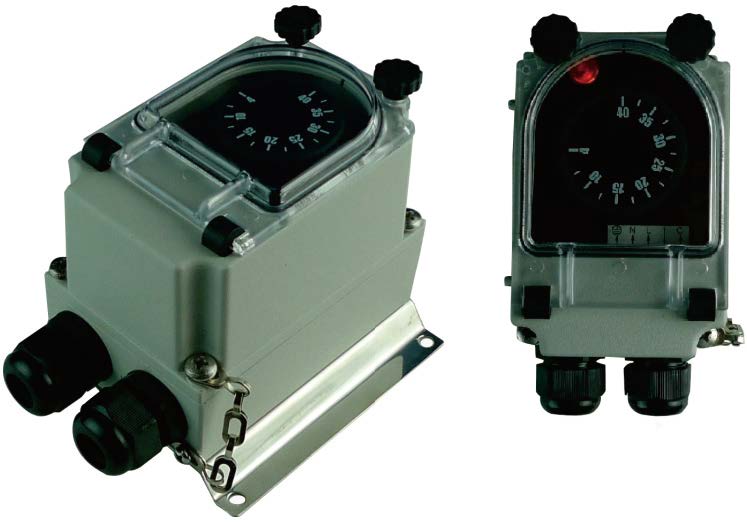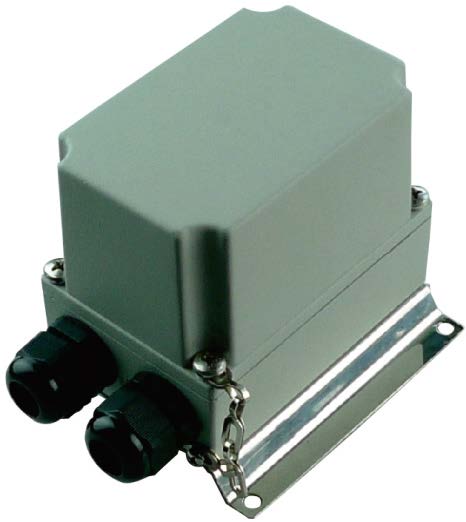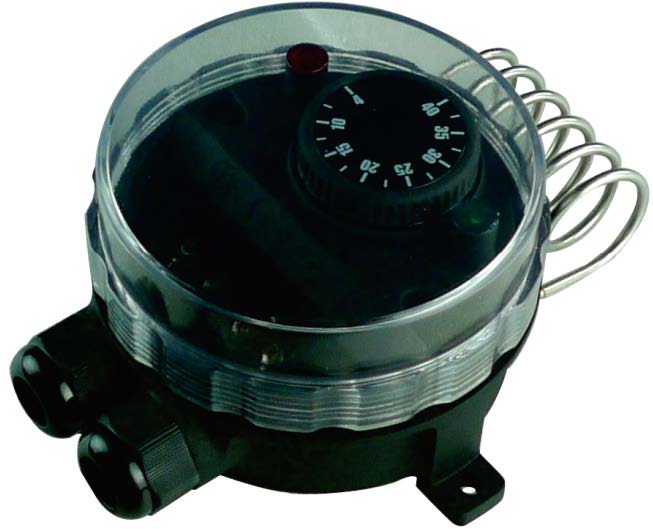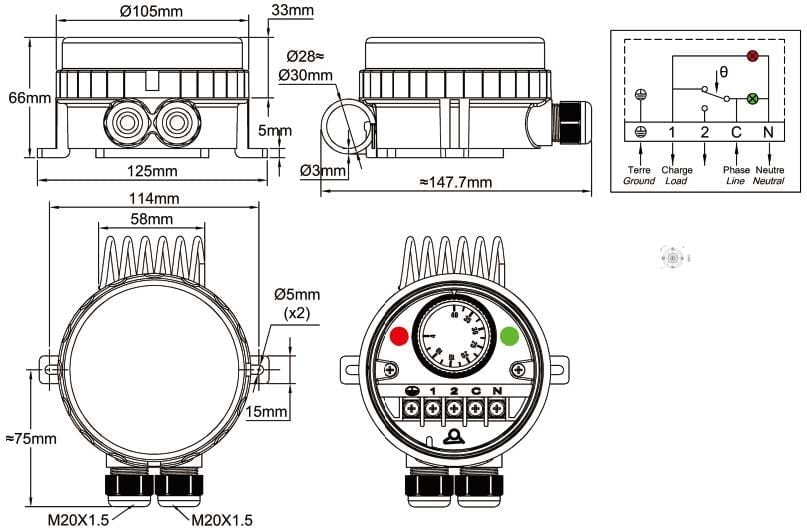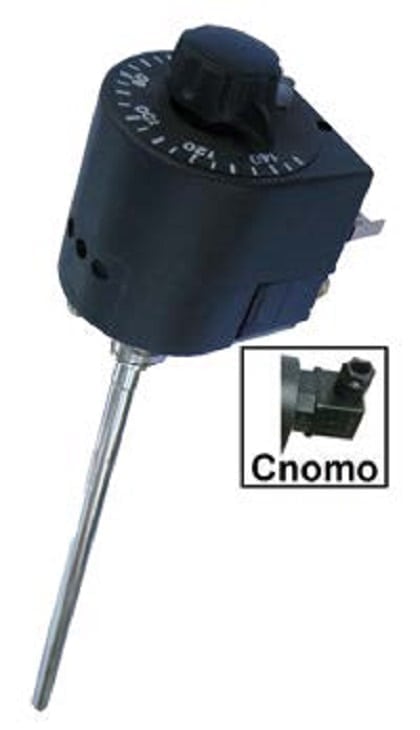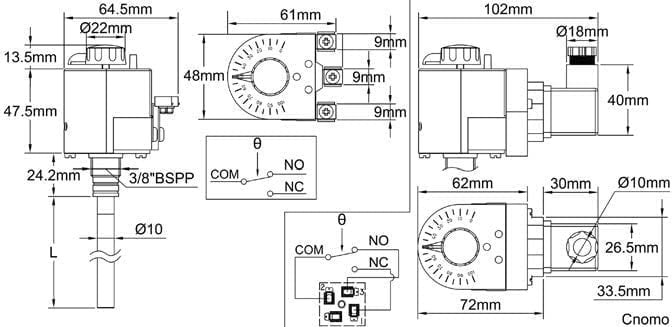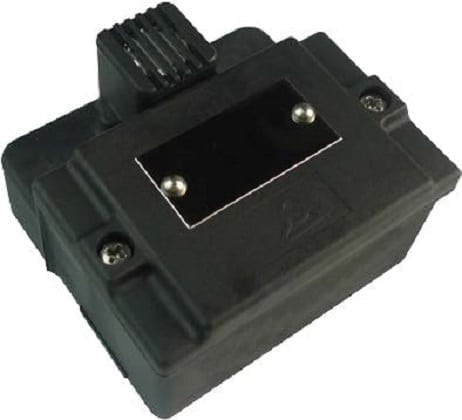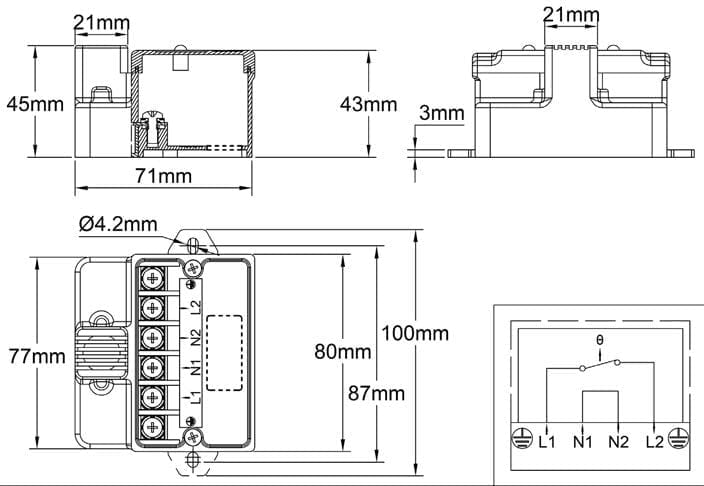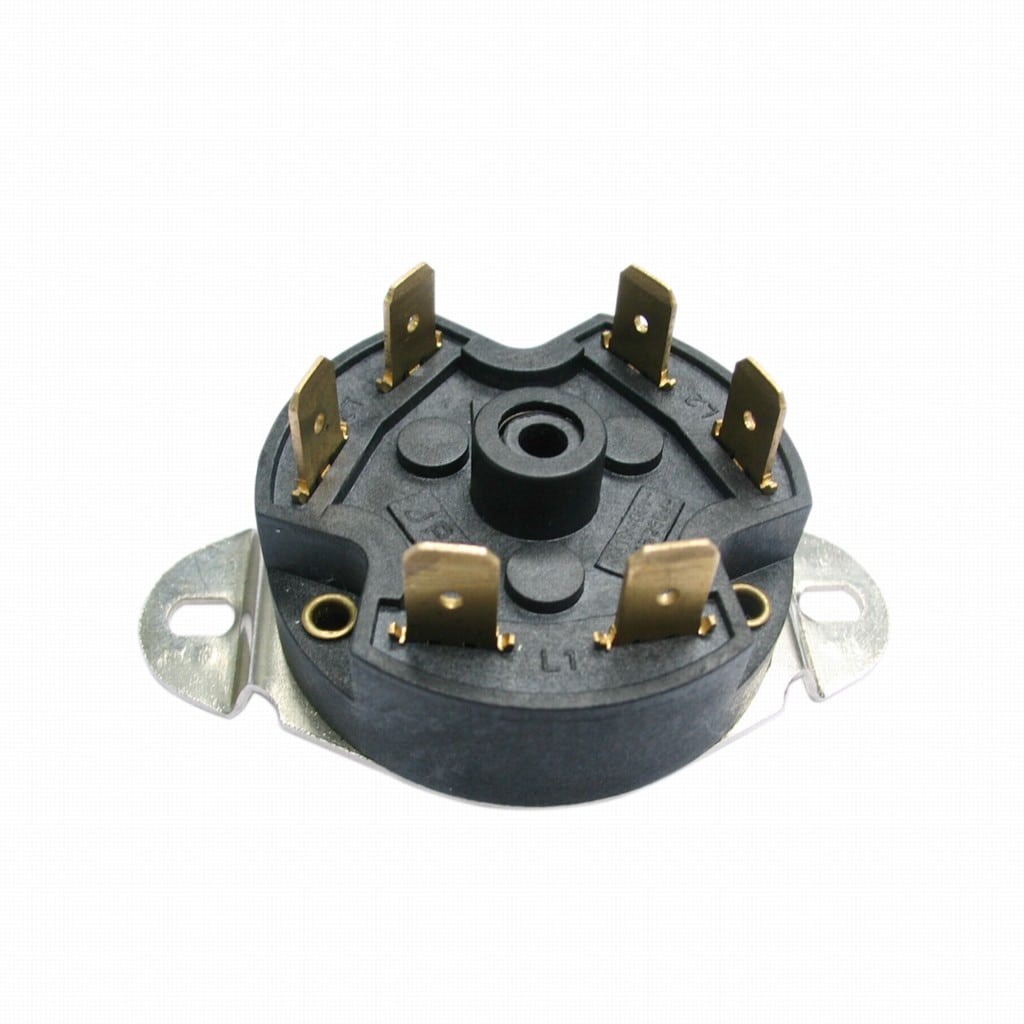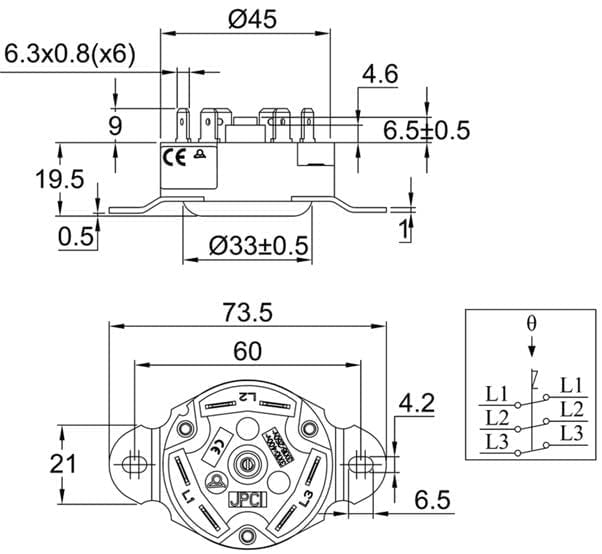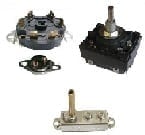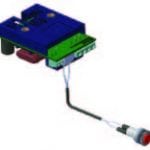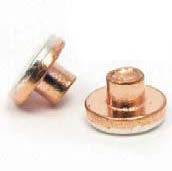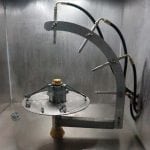Fixed setting ambiance or antifreeze thermostat, IP65 cable gland output, two pilot lights
Fixed setting ambiance or antifreeze thermostat, IP65, cable gland output, two pilot lights
In these boxes, the thermostat, bimetal disc type, is over-molded, and is thermally insulated from the wall on which it is mounted. Its temperature sensing cup is mechanically protected by a grid. It is located in front of the enclosure to be in an area of natural circulation of air.
| Dimensions | 77 × 71 × 45 mm |
|---|---|
| Ingress protection | |
| Housing raw material | |
| Voltage | |
| Sensing element | |
| Electrical rating | |
| Opening temperature (°C) | |
| Closing temperature (°C) |
MAIN FEATURES
In these boxes, the thermostat, bimetal disc type, is over-molded, and is thermally insulated from the wall on which it is mounted. Its temperature sensing cup is mechanically protected by a grid. It is located in front of the enclosure to be in an area of natural circulation of air.
Mounting: Wall, by external side brackets. These tabs can be folded inwards. There also is the opportunity to practice two mounting holes inside for wall mounting (Note: in this case the ingress protection class IP65 on the rear wall is lost)
Protection: IP65 (IK 03 On thermostat guard, IK10 the rest of the housing)
Material: ABS-PC black glass-fiber reinforced
Screws: Stainless steel, captive
Output: 2 Cable glands M20, PA66, IP66, for cable from 6 to 12 mm dia.
Electrical rating: Single pole, 8 to 16A 250V (100000 cycles). Contact style can be open on rise or close on rise.
Identification: The cover can be fitted with a 20x40mm riveted stainless steel identification plate (standard) or with a sticker (Option)
Customization: On request (MOQ apply)
Connection: Built in 4mm ² screw terminal block
Options:
– Other calibration temperatures
– Cream color housing
– Incorporation of a temperature sensor (thermocouple, Pt100 or Pt1000, thermistor)
Main references
| Calibration temperature °C (°F) | Close temperature °C (°F) | Electrical rating | Main uses | References |
| 8°C (46,4) | 3°C (37,4) | 8A250V | Ice detection, starts an antifreeze or heating system | Y20D9Z00805HCSV0 |
| 10°C (50) | 4°C (39,2) | 10A250V | Ice detection, starts an antifreeze or heating system | Y20D9P01006CUSV0 |
| 10°C (50) | 4°C (39,2) | 16A250V | Ice detection, starts an antifreeze or heating system | Y20D9J01006CUSV0 |
| 30°C (86) | 20°C (68) | 10A250V | Over-heating detection in residential premises, heating stop | Y20D9P03010CUSV0 |
| 20°C (68) | 30°C (86) | 10A250V | Over-heating detection in residential premises, alarm (NO contact) | Y20D9Q03010CUSV0 |
| 70°C (158) | 60°C (140) | 10A250V | Fire detection (withstand sprinklers water sprays) | Y20D9P07010CUSV0 |
Downloads
Related products
Bulb and capillary thermostats
Electronic control thermostats
Room and antifreeze temperature control boxes
Electrical cabinet ambient temperature thermostats, Din Rail mounting
Room and antifreeze temperature control boxes
Room and antifreeze temperature control boxes
Bimetal rod thermostats
Room and antifreeze temperature control boxes
Fixed setting ambiance or antifreeze thermostat, IP65 backside output, without pilot light
Disc temperature limiters
Technical informations associated to this product
-
Description of temperature controls
Used as control thermostats or as a safety thermostat with manual reset, these thermostats have a disc made of two different metals laminated together for temperature sensing element. These two metals have different expansion coefficients. -
Thermostats installation
The proper functioning of a thermostat depends primarily on the correct choice of the component, but also the conditions of its installation. Conditions used to calibrate regulating and control equipment in the factory are always ideal laboratory conditions, ensuring measurement accuracy and repeatability. These conditions are rarely those found in practice when installing thermostats. However, with a minimum of constraints, it is possible to optimize assemblies. -
Electrical contacts
As numerous mechanisms exist, we decided not to distinguish on the basis of constructive technique, but according to their operation speed, which is the key element. -
Electrical protection classes
The housings are designed to protect electrical equipment located inside. This protection must be considered in the electrical and environmental angles.)

